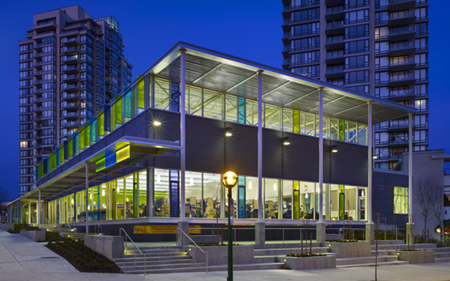While library services have all but halted during the COVID-19 pandemic, they’ve also revived a part of their historical duties that had largely diminished in the internet age.
Libraries are the OG (original Google) when it comes to researching and fact-finding. While younger generations almost certainly haven’t experienced this, libraries often took calls from people in need of certain information, including journalists. But since the rise of the internet and resources like Google and Wikipedia, that service has become less and less a part of a librarian’s duties.
But that may be making a bit of a comeback in the COVID era – in some form, anyway. Burnaby Public Library’s chief librarian Beth Davies said librarians have been taking plenty of calls from people in search of facts on the pandemic.
“It’s kind of similar, now, but it’s changed a bit. So instead of not having any information, I think what people are finding now is that there's information overload, and they don't know which bits of information are reliable and what they can trust,” Davies said.
“So the role we play now is less about ‘finding a fact for me’ and more about ‘tell me how I know whether this information is reliable.’”
That’s not to say the library isn’t still a resource for information. For instance, Davies said BPL is connected with various services and can help people find what they need, including information related to the pandemic.
“So we’ve been taking on a role on behalf of those groups of gathering information about what local services are available,” Davies said.
But the role has changed, and that’s especially true during the pandemic, she said.
“It’s definitely something that we’ve always done, but I think the more critical a piece of information is to somebody, the more important they feel it is to make sure that what they're reading or what they're hearing is correct and accurate.”
For those wondering, Davies said her general advice for anyone wondering whether the information they’re receiving is accurate or credible is to check the source. Sources can form a continuum of trustworthiness, from a meme on Facebook to a news report to information from public health officials.
“Can the information be triangulated in some way?” Davies said. “If it’s not coming from an official source, can it be confirmed from an official source? And I think, above all, don't believe everything you read on the internet.”
Public trust in a variety of institutions has waned over the years – Edelman’s annual trust barometer reports repeatedly show Canadians’ trust in media, government, business and NGOs is dropping. But Davies said she feels like libraries remain inoculated against that distrust that plagues other institutions.
“I honestly don’t know why, but we do seem to have the trust of people when we say something, and it's probably that we're really diligent about saying where we found the information. And we're probably quite circumspect when something is a particular viewpoint,” she said.
“We find that people really trust what we tell them, so we take that trust really seriously.”



